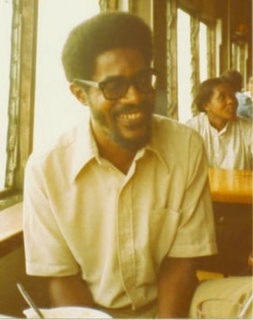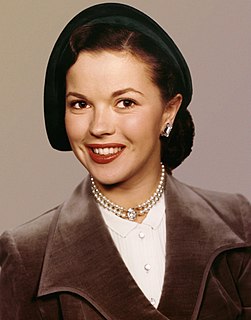A Quote by Opal Tometi
Fortunately, the leadership of black immigrant communities has always been present in all black liberation movements from leaders like Marcus Garvey to Shirley Chisholm to Malcolm X and Harry Belafonte. We know this is our legacy.
Related Quotes
There never has been a desire on the part of the government that the struggle of Black people in America should be linked to the struggle of our people in every part of the earth. Every leader that was international in scope and in reach became the target of the government - Paul Robeson, Marcus Garvey, W.E.B. DuBois, Martin Luther King Jr., Malcolm X, Kwame Ture and the Honorable Elijah Muhammad. Any Black leader who would try to connect us to our brothers and sisters in Africa and Asia were seen as a threat and became a target.
If the white man can come here uneducated and as an immigrant, and within 10 or 15 years set up an industry that provides job opportunities and educational opportunities for black people, then if the black man, the black leadership, who has access to all of this money and has all of these degrees today, can't use his talent and his know-how to set up business opportunities, job opportunities, housing opportunities for the black people the same as the white leaders have done for white people, then these black leaders need to get off the boat.
Marcus Garvey was one of the first advocates of Black Power, and is still today the greatest spokesman ever to have been produced by the movement of Black Consciousness...He spoke to all Africans on the earth, whether they lived in Africa, South America, the West Indies or North America, and he made Blacks aware of their strength when united.
I am an abolitionist. What does this mean? Abolitionist resistance and resilience draws from a legacy of black-led anti-colonial struggle in the United States and throughout the Americas, including places like Haiti, the first black republic founded on the principles of anti-colonialism and black liberation.
Black Lives Matter has become what black communities all over the world have needed it to become. At times, it is a hashtag; at other moments, it is a declaration, a cry of rage, a sharing of light. It has become a movement that is international, worldwide in its scope of liberation for black and oppressed people everywhere.
Actually we've had a black bourgeoisie or the makings of a black bourgeoisie for many more decades.In a sense the quest for the emancipation of black people in the US has always been a quest for economic liberation which means to a certain extent that the rise of black middle class would be inevitable. What I think is different today is the lack of political connection between the black middle class and the increasing numbers of black people who are more impoverished than ever before.
When Marcus Garvey died in 1940, the role of the British Empire was already being challenged by India and the rising expectations of her African colonies. Marcus Garvey's avocation of African redemption and the restoration of the African state's sovereign political entity in world affairs was still a dream without fulfillment.
































